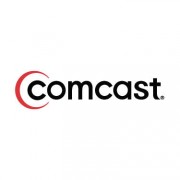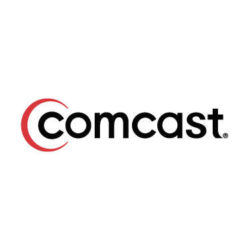 Comcast announced it has agreed to buy Time Warner Cable for $45.2 billion in stock, or $158.82 per share, in a deal that would combine the nation’s top two cable TV companies. TWC had wanted $160.00 per share, so this price came pretty close. The price beats a recent, rejected proposal by Charter Communications to buy Time Warner for about $132.50 per share, or $38 billion in cash and stock.
Comcast announced it has agreed to buy Time Warner Cable for $45.2 billion in stock, or $158.82 per share, in a deal that would combine the nation’s top two cable TV companies. TWC had wanted $160.00 per share, so this price came pretty close. The price beats a recent, rejected proposal by Charter Communications to buy Time Warner for about $132.50 per share, or $38 billion in cash and stock.
The deal was approved by the boards of both companies and, pending regulatory approval, is expected to close by the end of the year.
Time Warner Cable shareholders will receive 2.875 Comcast shares for every Time Warner Cable share they own. Once the deal is final, they will end up owning about 23% of the combined company.
The new cable company will be led by President and CEO Neil Smit. Smit is currently President and CEO of Comcast Cable and EVP of Comcast Corp.
Through the merger, Comcast will acquire Time Warner Cable’s approximately 11 million managed subscribers. In order to reduce competitive concerns, Comcast is prepared to divest systems serving approximately 3 million managed subscribers. As such, Comcast will, through the acquisition and management of Time Warner Cable systems, net approximately 8 million managed subscribers in the deal. This will bring Comcast’s managed subscriber total to 30 million. Following the transaction, Comcast’s share of managed subscribers will remain below 30% of the total number of MVPD subscribers in the U.S. and will be essentially equivalent to Comcast Cable’s subscriber share after its completion of both the 2002 AT&T Broadband transaction and the 2006 Adelphia transaction, noted the company in a release.
Charter issued its own statement on the deal: “Charter has always maintained that our greatest opportunity to create value for shareholders is by executing our current business plan, and that we will continue to be disciplined in this and any other M&A activity we pursue.”
“The combination of Time Warner Cable and Comcast creates an exciting opportunity for our company, for our customers, and for our shareholders,” said Brian Roberts, Comcast CEO. “In addition to creating a world-class company, this is a compelling financial and strategic transaction for our shareholders. Also, it is our intention to expand our buyback program by an additional $10 billion at the close of the transaction. We believe there are meaningful operational efficiencies and the adjusted purchase multiple is approximately 6.7x Operating Cash Flow. This transaction will be accretive and will yield many synergies and benefits in the years ahead. Rob Marcus and his team have created a pure-play cable company that, combined with Comcast, has the foundation for future growth. We are looking forward to working with his team as we bring our companies together to deliver the most innovative products and services and a superior customer experience within the highly competitive and dynamic marketplace in which we operate.”
“This combination creates a company that delivers maximum value for our shareholders, enormous opportunities for our employees and a superior experience for our customers,” said Robert Marcus, Chairman and CEO of Time Warner Cable. “Comcast and Time Warner Cable have been the leaders in all of the industry’s most important innovations of the last 25 years and this merger will accelerate the pace of that innovation. Brian Roberts, Neil Smit, Michael Angelakis and the Comcast management team have built an industry-leading platform and innovative products and services, and we’re excited to be part of delivering all of the possibilities of cable’s superior broadband networks to more American consumers.”
Comcast says that because it and TWC don’t serve overlapping markets, their combination won’t reduce competition for consumers. Comcast operates mainly in the northeast including Philadelphia, Boston, DC and Chicago. Time Warner Cable operates in markets such as Dallas, the Carolinas, Ohio, Wisconsin, New York, LA and Milwaukee.
Comcast and Time Warner Cable are expected to save $1.5 billion in annual costs over three years, with half of that realized in the first year.
Comcast also plans to add an additional $10 billion in share buybacks at the close of the deal, on top of a recent plan to boost its share buyback authority to $7.5 billion from $1 billion.
American Cable Association President and CEO Matthew Polka issued the following statement regarding the merger: “Comcast-NBCU’s takeover of Time Warner Cable would vastly increase the number of cable homes served by an operator affiliated with NBCU’s popular programming, creating new incentives for NBCU to demand unfair terms and conditions from TWC’s pay-TV distribution rivals, including ACA Members. Small and medium-sized cable operators have highlighted for nearly two years that they have less protection from this sort of vertical integration than Congress intended in view of the fact that the Federal Communications Commission has yet to act on its own rulemaking to update the FCC’s definition of a ‘buying group’ to reflect today’s market. The current definition effectively excludes the National Cable Television Cooperative, the buying group used by more than 900 small and medium-sized cable operators, from utilizing program access rules that require cable-affiliated programmers to offer programming on non-discriminatory prices, terms and conditions. In our view, the FCC needs to complete the program access/buying group rulemaking before it starts its public interest review of the Comcast-NBCU/TWC transaction. As more details emerge, ACA will be reviewing the Comcast-NBCU-TWC transaction carefully to determine whether the deal should be denied outright or approved with conditions. ACA has long acknowledged many problems in the pay-TV market, including the soaring cost of retransmission consent and sports networks and the record-setting number of broadcaster-imposed TV signal blackouts. ACA will be looking closely to see whether this transaction makes matters worse for small and medium-sized cable operators and their customers.”
RBR-TVBR observation: Charter had agreed in principle to sell Time Warner Cable’s New York, North Carolina and New England assets to Comcast if it (Charter) succeeded in buying Time Warner Cable. Time Warner Cable has about 3 million subscribers in those markets, which could bring an additional $16 billion to the bottom line. Charter would have bought all of Time Warner Cable on its own and later sell these markets to Comcast. Comcast wants Time Warner Cable’s markets that adjoin its current operations. This deal is also is going to add subscribers to Comcast-owned cable networks. Bottom line, they’ll improve the bottom line in those overlapping and adjacent markets by adding subscribers and consolidation of resources. Yes, that will mean layoffs.





